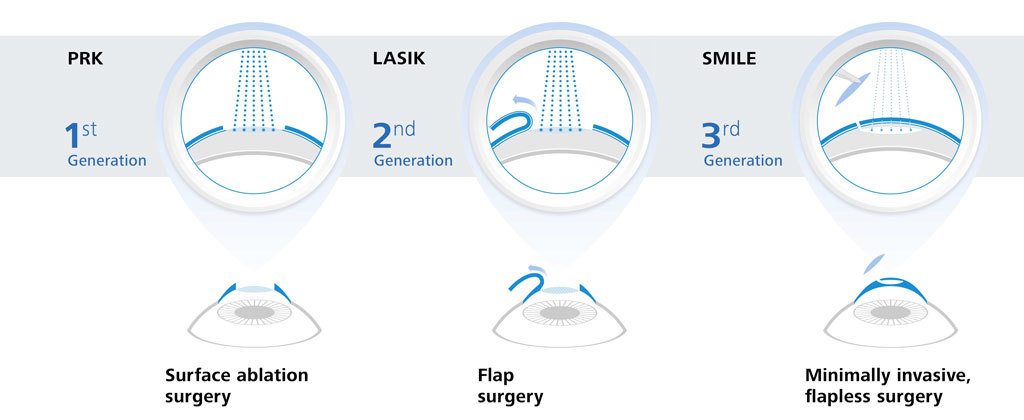Contemplating SMILE Surgical Procedure? Explore Crucial Aspects And Insights That Will Aid You In Coming To A Thoughtful Choice Worrying Your Visual Future
Contemplating SMILE Surgical Procedure? Explore Crucial Aspects And Insights That Will Aid You In Coming To A Thoughtful Choice Worrying Your Visual Future
Blog Article
Short Article By-Frederiksen Storm
If you're pondering SMILE eye surgery, ponder this: are you prepared to accept potential visual freedom, or does the idea of any risks make you think twice? Your choice will depend upon a cautious balance of considering the benefits against the uncertainties. It's vital to dig much deeper right into the nuances of SMILE surgery to make an enlightened selection that lines up with your aesthetic goals.
Recognizing SMILE Eye Surgery
When taking into consideration SMILE Eye Surgical treatment, it is very important to recognize the procedure and its benefits. SMILE, which means Small Laceration Lenticule Removal, is a minimally intrusive laser eye surgery that fixes common vision troubles like nearsightedness (nearsightedness).
During the treatment, your eye doctor will use a femtosecond laser to develop a little laceration in your cornea. Via this laceration, a small disc of tissue called a lenticule is eliminated, reshaping the cornea and fixing your vision.
https://lasik-halo-effect71605.izrablog.com/29786621/common-post-operative-queries-finest-practices-for-taking-care-of-your-eyes-following-lasik of the essential benefits of SMILE Eye Surgical procedure is its quick recuperation time. Many clients experience improved vision within a day or 2 after the procedure, with very little discomfort.
Furthermore, SMILE is understood for its high success price in offering lasting vision adjustment. Unlike LASIK, SMILE doesn't require the creation of a flap in the cornea, minimizing the threat of difficulties and enabling a much more secure corneal structure post-surgery.
Understanding the procedure and its advantages is critical when considering SMILE Eye Surgery for vision adjustment.
Advantages and disadvantages of SMILE
Thinking About SMILE Eye Surgical procedure for vision improvement includes various advantages and prospective disadvantages.
you can try this out of the primary pros of SMILE is its minimally invasive nature, as it includes a small laceration and commonly results in fast healing times. The procedure is also recognized for creating minimal discomfort and dry eye signs post-surgery compared to other vision modification approaches. In addition, SMILE has been revealed to supply exceptional aesthetic end results, with many people achieving 20/20 vision or better.
On the other hand, a possible con of SMILE is that it might not be suitable for individuals with extreme refractive errors, as the therapy variety is somewhat restricted compared to LASIK. An additional factor to consider is that the knowing contour for specialists applying SMILE can influence the schedule of seasoned providers in certain areas.
It's important to weigh these advantages and disadvantages carefully when determining if SMILE is the right choice for your vision adjustment demands.
Establishing Qualification for SMILE
To identify if you're eligible for SMILE eye surgical treatment, your optometrist will perform a detailed assessment of your eye health and wellness and vision needs. Throughout this analysis, variables such as the stability of your vision prescription, the density of your cornea, and the overall health of your eyes will certainly be analyzed.
Usually, candidates for SMILE more than 22 years of ages, have a stable vision prescription for at the very least a year, and have healthy corneas without conditions like keratoconus.
Your eye doctor will certainly also consider your overall eye wellness, any kind of existing eye problems, and your way of living requires to identify if SMILE is the appropriate choice for you. It's essential to connect any kind of certain visual needs or issues you might have during this assessment to ensure that the treatment lines up with your assumptions.
If you aren't qualified for SMILE, your eye doctor might recommend different vision improvement choices that much better fit your private needs and eye health status.
Final thought
Eventually, determining whether SMILE eye surgical procedure is right for you calls for mindful consideration of your individual eye health and visual requirements. Speak with your ophthalmologist to identify your qualification for the treatment and weigh the possible advantages and drawbacks. Remember to interact any kind of issues or concerns you may have during the examination procedure to make an informed choice regarding your vision correction alternatives.
